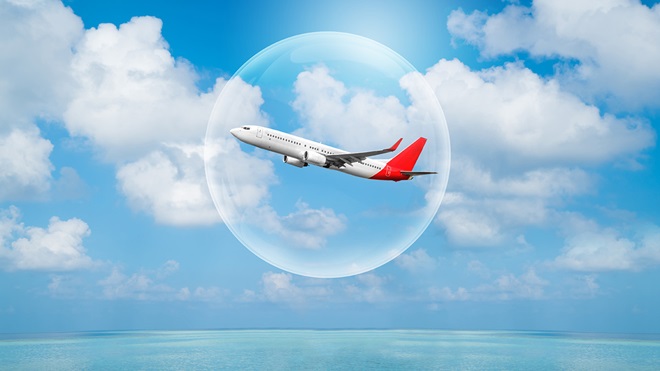We're on your side
For more than 60 years, we've been making a difference for Australian consumers. In that time, we've never taken ads or sponsorship.
Instead we're funded by members who value expert reviews and independent product testing.
With no self-interest behind our advice, you don't just buy smarter, you get the answers that you need.
You know without hesitation what's safe for you and your family.
And you'll never be alone when something goes wrong or a business treats you unfairly.
Learn more about CHOICE membership today
Stock images: Getty, unless otherwise stated.
After more than a year, Australia’s borders have opened for a travel bubble with New Zealand. And some travel insurers offer limited cover if your travel plans get interrupted by COVID-19.
But these international travel insurance policies only cover you for travel to New Zealand while a government travel ban still prevents you from travelling anywhere else without an exemption.
On this page:
- Do you need travel insurance for New Zealand?
- Will travel insurance provide cover for COVID-19 in New Zealand?
- Will travel insurance cover skiing in New Zealand?
- Checklist for your New Zealand holiday
Do you need travel insurance for New Zealand?
Travel insurance is essential for Australians travelling to New Zealand. Buy your insurance at the same time as you book your trip, that way you'll be covered if you have to cancel for some reason before you go.
Medical costs in New Zealand
New Zealand and Australia have a reciprocal healthcare agreement, meaning that Australian travellers can access New Zealand's public health service in an emergency, and vice versa.
You'll still have to pay some fees for treatment and medication and it's important to remember the agreement isn't a replacement for travel insurance.
Remember to take your Medicare card with you
For example, reciprocal health care does not cover you for free or subsidised care by a GP or ambulance, and if you get seriously ill, medical repatriation is very expensive and only covered by travel insurance.
Remember to take your Medicare card with you – you'll need it, along with your passport, to prove that you're eligible.
Accident cover in New Zealand
In New Zealand, accident victims cannot sue a third party for compensation. Instead, the Accident Compensation Commission (ACC) covers the cost of medical care within New Zealand.
This means it's essential that visitors to New Zealand are covered by travel insurance for repatriation, loss of income and disruptions to travel plans as you won't be compensated for those even if the other person was 100% at fault.
Note: Because of the ACC fund, CTP car insurance is not compulsory in New Zealand, as it is in Australia. However, it's still recommended and travel insurance can reduce the excess on the insurance your car hire company offers you.
Earthquake cover in New Zealand
New Zealand sometimes experiences severe seismic activity. The 2011 Christchurch earthquake claimed 185 lives and levelled much of the city centre.
Safety campaigns in New Zealand advise you to 'drop, cover and hold' – drop to the ground, take cover and hold on – in the event of an earthquake. See getready.govt.nz for more specific advice.
And read your travel insurance product disclosure statement (PDS) to see if you're covered for medical and cancellation for natural disasters
Will travel insurance provide cover for COVID-19 in New Zealand?
Some travel insurers, for example, Qantas (NIB), Virgin (Cover-More) or Medibank (Zurich), now offer travel insurance policies with limited cover against COVID-19. But they don't cover you if there's a general government travel ban, quarantine or border closure.
They normally provide cover for medical expenses should you contract COVID-19 and may cover travel delays or cancellations if you, your travelling partner, or a close relative contract COVID-19 before or during your travel.
You may also be covered if your accommodation, such as a ski resort, closes because of a COVID-19 outbreak or you have to go into quarantine because you were a close contact of someone who contracted COVID-19.
There are also other exclusions, especially for cruises and pre-existing conditions, so you need to read the insurer's PDS carefully to check what you're covered for.
Will travel insurance cover skiing in New Zealand?
Many insurers will cover you for standard skiing and snowboarding, but some offer it as an optional extra and some have special conditions.
Before getting insurance for a ski holiday, make sure it will cover you for your specific skiing or snowboarding destination, as well as for the activities you intend to do.
For example, off-piste (backcountry) skiing or snowboarding is often not covered, and when it is covered, it's usually only if you're still within the resort boundaries or skiing with a guide.
The same goes for riding on a snowmobile, which tends to be an optional cover – check directly with insurers as some may only cover riding a snowmobile if you're using it as a mode of transport rather than recreationally.
Checklist for your New Zealand holiday
- If you're planning on skiing, bungee jumping or doing anything else potentially bone-breaking, make sure your insurance covers it. You'll often need to purchase extra cover.
- Check if your passport is still valid, and if not, renew your passport online.
- Take your Medicare card with you.
- Keep a printout of your travel insurance details with you at all times while on your trip. It's also a good idea to share your insurance details with family or friends before you leave.




